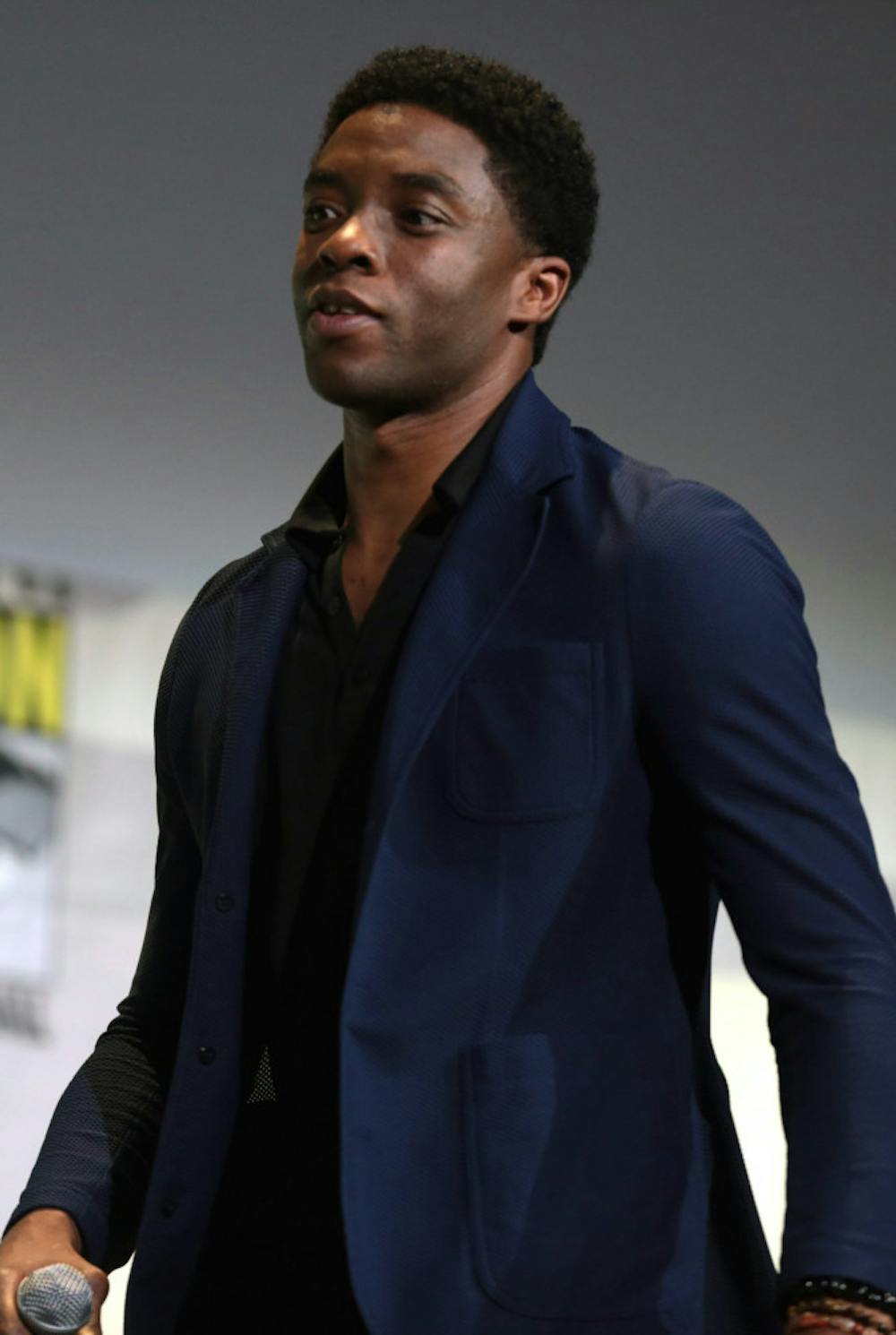Chadwick Boseman, a renowned actor known for his iconic roles as Black Panther in the Marvel Cinematic Universe and Jackie Robinson in “42,” died on Aug. 28 after a four-year battle with cancer.
At age 43, the loss of the late actor came as a shock to many. According to a statement on Boseman’s Instagram released after his death, he was diagnosed with stage 3 colon cancer in 2016 and had continued to battle the condition for the last four years as it progressed to stage 4. According to the post, Boseman died in his home with his wife and family by his side.
“A true fighter, Chadwick persevered through it all, and brought you many of the films you have come to love so much,” the statement read. “From ‘Marshall’ to ‘Da 5 Bloods’... and several more, all were filmed during and between countless surgeries and chemotherapy.”
“When I heard about Boseman’s passing, I was in disbelief,” Jordan Trotman, a senior IT management major, said. “He was truly a role model for me because he was unapologetically black, unapologetically himself, and he never sought after the easy way out of things.”
Jarrod Jackson, a graduate student studying public administration, said learning that Boseman was working while battling cancer made his death even more tragic. He said he saw it as Boseman sacrificing his health for the benefit of the viewer, but he does see the power in producing these films.
“I am a strong believer that art has power and can start important conversations,” Jackson said. “As an actor, Chadwick was able to have historical black figures brought up in conversation again, and the public, including myself, [were] reminded of their impacts.”
Some of the iconic black figures that Boseman portrayed in films were Jackie Robinson, James Brown and Thurgood Marshall.
Tyler Soso, a senior visual and sound media major, said the roles that Boseman chose for himself spoke to many people because he was telling history that is often ignored in the mainstream through his art.
“As a black man, it's one thing to read and educate yourself about historical figures such as Jackie Robinson and Thurgood Marshall,” Soso said. “It is another thing when you have a biopic to visualize that type of black history, and is even more important when the actor embodies the life of that person. That is what Chadwick Boseman did in those roles.”
“Black Panther” is considered to be Boseman’s most popular film and role as it widened his viewership to a more mainstream audience. Set in the Marvel Cinematic Universe, the film follows an African king played by Boseman, who also holds the hero persona of the Black Panther, in the fictional country Wakanda. The movie was a commercial success, bringing $1.3 billion to the box office. “Black Panther” was also the first superhero film to be nominated for Best Picture at the Oscars.
“I really enjoyed ‘Black Panther’ because it showed that a movie centering black people was able to have cultural significance and be mainstream,” Jackson said. “It was also significant seeing black people center staged in a hero role and not as the victim because we are more than just our trauma.”
Tributes poured out at the announcement of Boseman’s death. His memory was honored by his co-stars and other influential figures who admired his work, like democratic vice-presidential nominee Kamala Harris, who attended Boseman’s alma mater Howard University.
“Heartbroken. My friend and fellow Bison Chadwick Boseman was brilliant, kind, learned and humble,” Harris said. “He left too early, but his life made a difference. Sending my sincere condolences to his family.”
Andrew Byrd can be reached at andrew.byrd@student.shu.edu.





